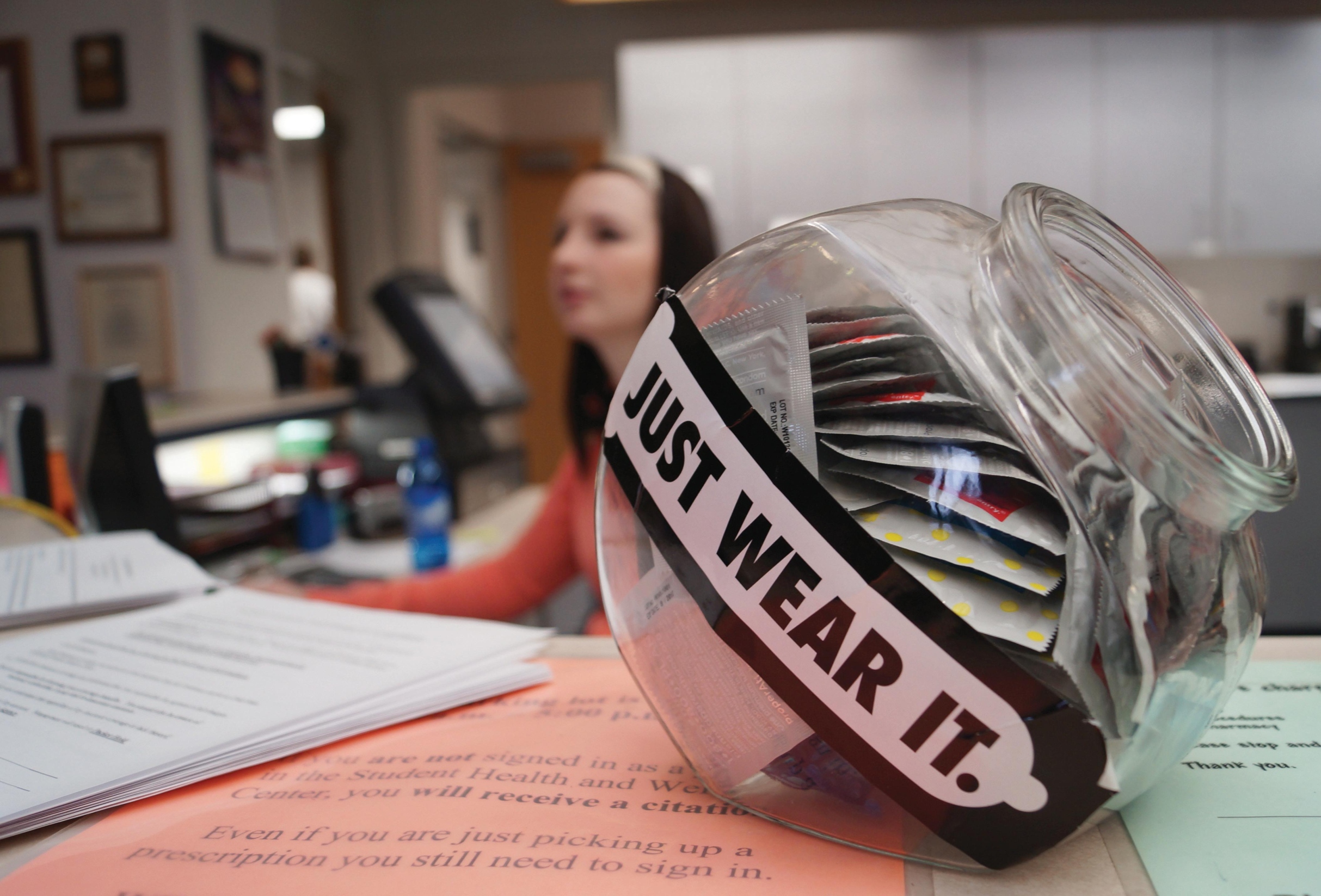Davis: Get to know the rules
The most common myth about sexually transmitted infections on campus is that there aren’t any cases of them, said James Davis, director for the Student Health and Wellness Center.
He said they do exist at USU and they are a problem for some demographics.
The most common STI on campus is chlamydia, followed by herpes and syphilis. There is a notable increase in the number of gonorrhea cases that are being seen state-wide.
Davis said the No. 2 myth about STIs at USU is that people don’t need to have sex to get infected with a sexually transmitted illness.
“Sex means a lot of things to a lot of people, and you can have STI transmission through foreplay,” Davis said. “You can have STI transmission through contact with objects that are used in a sexual connotation. A variety of contact can lead you to an STI including oral contact, manual contact; all you need to transmit an STI is a moist floor or a moist surface.”
Getting tested for STIs is a dynamic process because people can become infected with things like HIV and not show signs of the it for six months regardless if they have been tested, Davis said. With some other treatable STIs, people can still pass them along up to 14 days after their treatment.
“It’s really important that someone is continuing to be tested and treated,” said Matthew Mietchen, an HIV and STD epidemiologist for the Utah Department of Health.
Andrew Swensen, a junior studying English, said he is an advocate for how important it is to get tested through a club on campus called Voices for Planned Parenthood, or VOX, which he is the president of. The group sets up a table periodically around the TSC and informs people about sex. People at the table also hand out supplies.
“We also have a lot of information about how to get tested, where you should get tested, why you should get tested, how often you should get tested,” Swensen said.
If students believe they have an STI, they can approach any physician’s office, the SHWC, Planned Parenthood or the public health department for confidential testing.
Davis said the SHWC is open to any lifestyles and questions people may have.
“I want to get one of the neon signs that says, ‘We’re open,’ and that didn’t mean anything about hours of operation,” he said. “We are open from 8 a.m. to 5 p.m., but we’re also very open to questions.”
Davis said he goes out to give prevention presentations to groups around campus, including people who are at high risk for getting STIs. However, due to USU’s predominant LDS culture, he tends to keep issues like STIs a private matter.
“We tend to discuss more internally than we flash across billboards and campus,” he said.
The SHWC provides free condoms to students in a bowl in the lobby even though condoms are not 100 percent effective way to prevent STIs, Davis said.
“The only thing that’s really been shown to prevent sexually transmitted illness is abstention,” Davis said. “I’m not particularly an abstinence advocate, but I also believe in careful sex. If you want to play the game, get to know the rules.”
– morgan.pratt.robinson@gmail.com
Twitter: @morganprobinson

